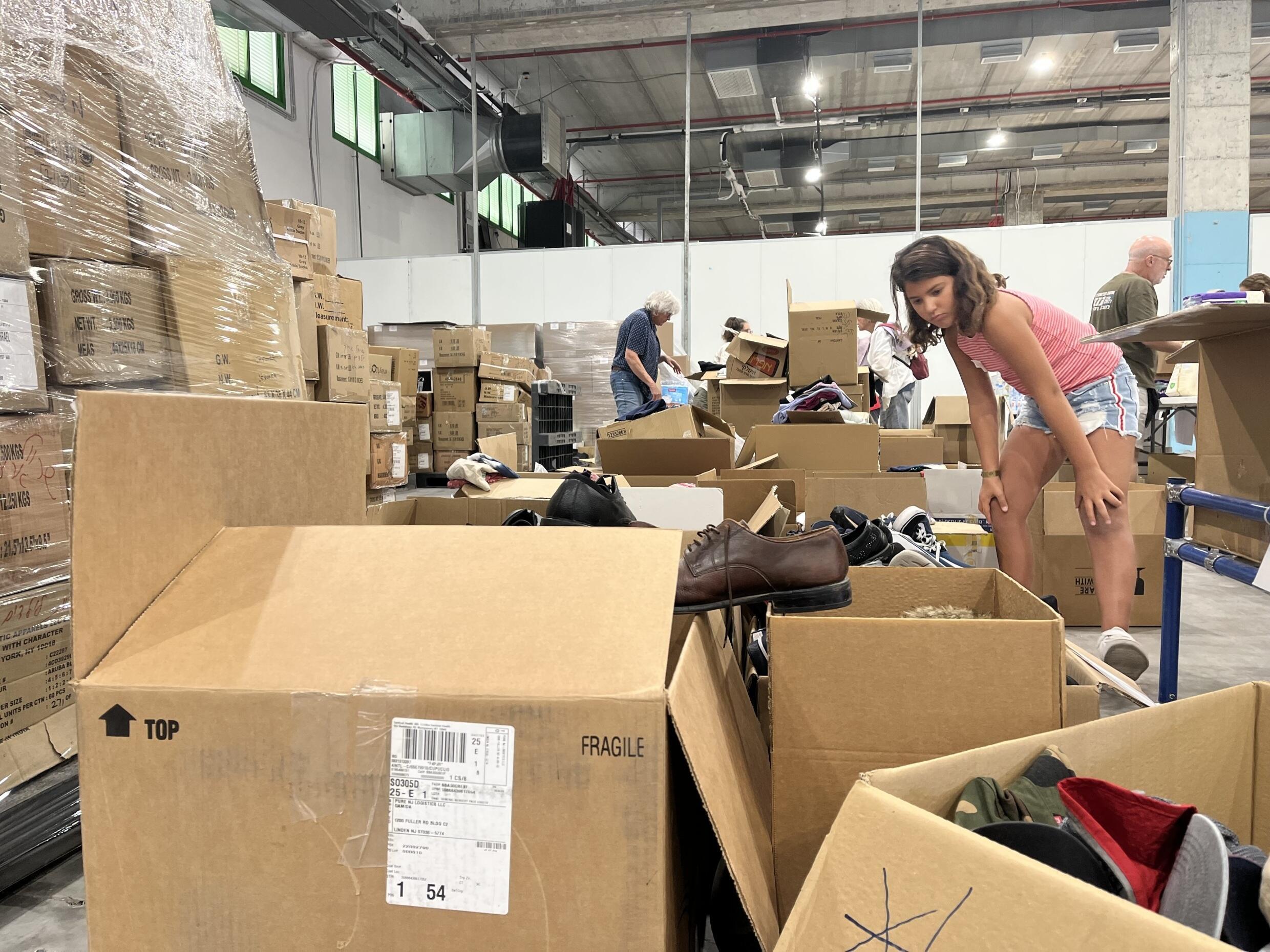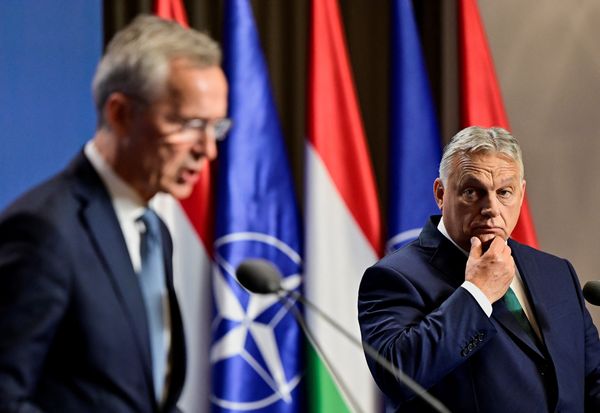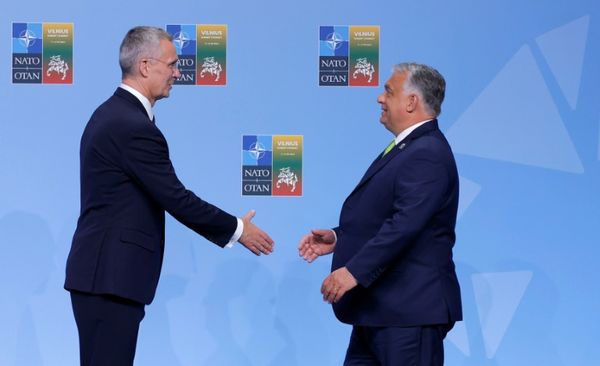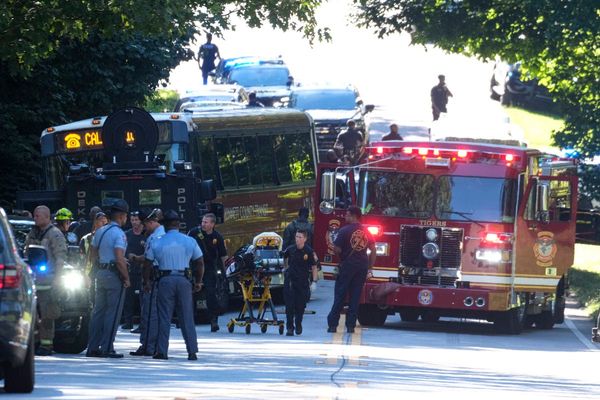
From our special correspondent in Israel – The Brothers and Sisters in Arms group was active in the street protests against Israeli President Benjamin Netanyahu's controversial justice reforms that rocked Israel for months on end earlier this year. But after the Hamas attacks of October 7, this group of former soldiers pivoted from protesting to evacuating kibbutzim, distributing food and saving animals.
At a kibbutz in southern Israel, not far from Gaza, what used to be a collective farm has been transformed into a crisis management centre.
Under a hot morning sun, dozens of volunteers are waiting. All are army veterans, and all are members of Brothers and Sisters in Arms (temporarily renamed Brothers and Sisters for Israel), which has become Israel’s largest aid organisation in the wake of the Hamas attacks in Israel on October 7.
The group originally formed in January 2023 to protest against controversial reforms to the national justice system proposed by Prime Minister Benjamin Netanyahu’s far-right government that would reduce the Supreme Court's oversight of the government.
"At the beginning it was just a very few close friends," says Eitan Herzel, the organisation's co-founder and a former member of an elite commando unit in the Israeli army.
“We decided to do a three-day journey to the Supreme Court in Jerusalem," he says. "We thought, after that, people will listen to us and everything will be stopped.” The group quickly gained momentum, and thousands joined them on the journey to protest.
“Unfortunately, we realised that it was not enough,” Herzel says.
Netanyahu’s most fervent supporters saw the group as traitors and even anarchists, but the former soldiers felt they were engaged in a fight to save “democracy in Israel". Their mission quickly transformed when Hamas fighters carried out a deadly attack in Israel on October 7.
Watching the attack felt like “the sky was falling. Something had changed,” Herzel says. Instantly, the organisation pivoted “to become a rescue organisation that provides help".
"We decided to open a centre in Tel Aviv and the second one in the south, close to the Gaza Strip, to be able to provide a fast response," he says.
Herzel arrived to set up the southern centre on Sunday morning. With the army’s agreement, Brothers and Sisters in Arms began emergency operations to help people directly affected by the attacks, starting by evacuating residents in kibbutzim in southern Israel and foreign workers.
“Our first priority was to rescue people from all the villages around,” Herzel says. Then they found local residents safe places to stay.

Volunteers wore T-shirts bearing the Brothers and Sisters in Arms logo. At first, they were not always well received.
“Some people at the beginning were a little bit against us," Herzel says. "Some people didn't like that we came with our shirts and symbols.”
But this attitude seems to have changed, he says.
“I had a 75-year-old lady that came here, she hugged me and she said, ‘I don't know why they taught us to hate you. You are like angels.’ She gave me 20 shekels (about €4.60) to contribute something – the only thing she had. It was a very emotional moment for me.”
‘We are the functioning system’
The group’s tight organisation meant it was able to scale up quickly. Soon volunteers were delivering food to families and soldiers, distributing clothes, shoes and essential goods – as well as saving pets.
“We are like a firm. It's a one-week-old firm but it has very good control over all its missions – the needs, the logistics,” Herzel says. "It looks like Amazon and it started from nothing. Everything is based on a volunteering system. It’s just amazing."
For the former soldier, who has committed his life to his country, the humanitarian gap the group is filling is another sign of the Israeli government’s failure.
“They were focused on this [justice] reform and they didn't really care about the needs of the Israeli people," he says. "And unfortunately, this is what brought us to this situation. I'm not talking about the security aspects, but the country now is not functioning and we are now replacing [the government]. We are the functioning system.”
The organisation runs entirely on donations from individuals and businesses that have been coming from far and wide. It currently uses a warehouse to stock almost 10 tonnes of donated items.

The number of volunteers has also multiplied quickly. Yoav, another co-founder of the group, says that when they started there were just eight volunteers. Now there are 3,000 every day.
All the better to meet the high demand. Volunteers have completed nearly 5,000 orders for displaced families and soldiers requesting water, food and various products such as mobile phone batteries.
The crisis management centre is alive with activity. Amid the general hubbub, dozens of people busy themselves with various tasks. Working from white plastic chairs and tables, some volunteers are concentrating on telephone calls, while others have their eyes fixed on computer screens.
Each has a specific duty, divided between taking requests, preparing orders and distribution.
One army reservist explains that they use a GPS system to monitor where field teams are throughout the day. Missions are tracked on a large wall map, covered in different coloured dots: blue represents defined missions and precise deliveries, green is for volunteers who have been sent into the terrain without a specific task.
Animal rescue
As fans circulate hot air around the large room, dog-lover Dan is busy. Two days after the Hamas attacks, he and other volunteers realised that many animals could also be in danger; now Dan is in charge of saving them.

“We started getting calls from the army," he says. "The army was finding dogs, cats, sometimes other animals, and they were rescuing them and they didn't know where to bring them. So, we started this organisation to receive animals from the field and take care of them.”
Dan remembers a story they heard about a soldier entering a home where a whole family was found dead after a grenade exploded. Only the dog had survived.
The soldier had a chest injury, but still rescued the dog.
“He took it to an animal hospital in central Israel and then went to the hospital himself. This is the type of wonderful soldiers and wonderful people that we have [here],” Dan says.

Rescued animals now have their own dedicated zone in the kibbutz, which has become rather well-equipped.
Behind a hangar filled with empty cages, there is a room piled high with bags of kibble, muzzles and other pet supplies alongside what looks like an examination table with infusion bags hanging overhead.
“It’s absolutely insane,” Dan says. “This is maybe a tenth of what we got… [There’s] dog food, cat food. We have a veterinary clinic here – full service.”
Everything has been donated by vet clinics or private citizens. "None of it from the government. Don't get me started on that,” Dan says.
Vered, a 34-year-old veterinarian, has travelled from Tel Aviv to contribute to the effort. Today is her first day of volunteer work in the emergency room.
"We wait for dogs and cats to be rescued from the war zones, and then they come here. We give them [a] first treatment … [and] see if they have any owners,” she says. “If the owner is still alive, we will try to [give] them back. If not, we will rehome them.”

As a vet, Vered is used to treating animals with serious injuries. Even so, she says, “I hope not to see any serious things that I cannot help”.
The rescued pets are often traumatised, and are evacuated from the kibbutz quickly so that the constant sound of explosions and helicopters flying overhead doesn’t add to their stress.
Almost 200 animals have been saved in the past five days, Dan says. But larger numbers arrive every day.
"Our soldiers are risking their lives to save pets because pets are part of the family. And as a dog owner, I would want my pets to be safe before me, because they are like our children. We need to take care of them before we need to take care of ourselves." Dan stops talking for a moment, overcome with emotion.
“We've also rescued Palestinian dogs that have run from their side of the fence to ours. We don't care if it's a Palestinian dog. We don't care if it's an Israeli dog. We think all lives matter. Whether you walk on two feet or on four feet or you have wings, it doesn't matter.”
This article was adapted from the original in French. Interviews have been lightly edited for length and clarity.







